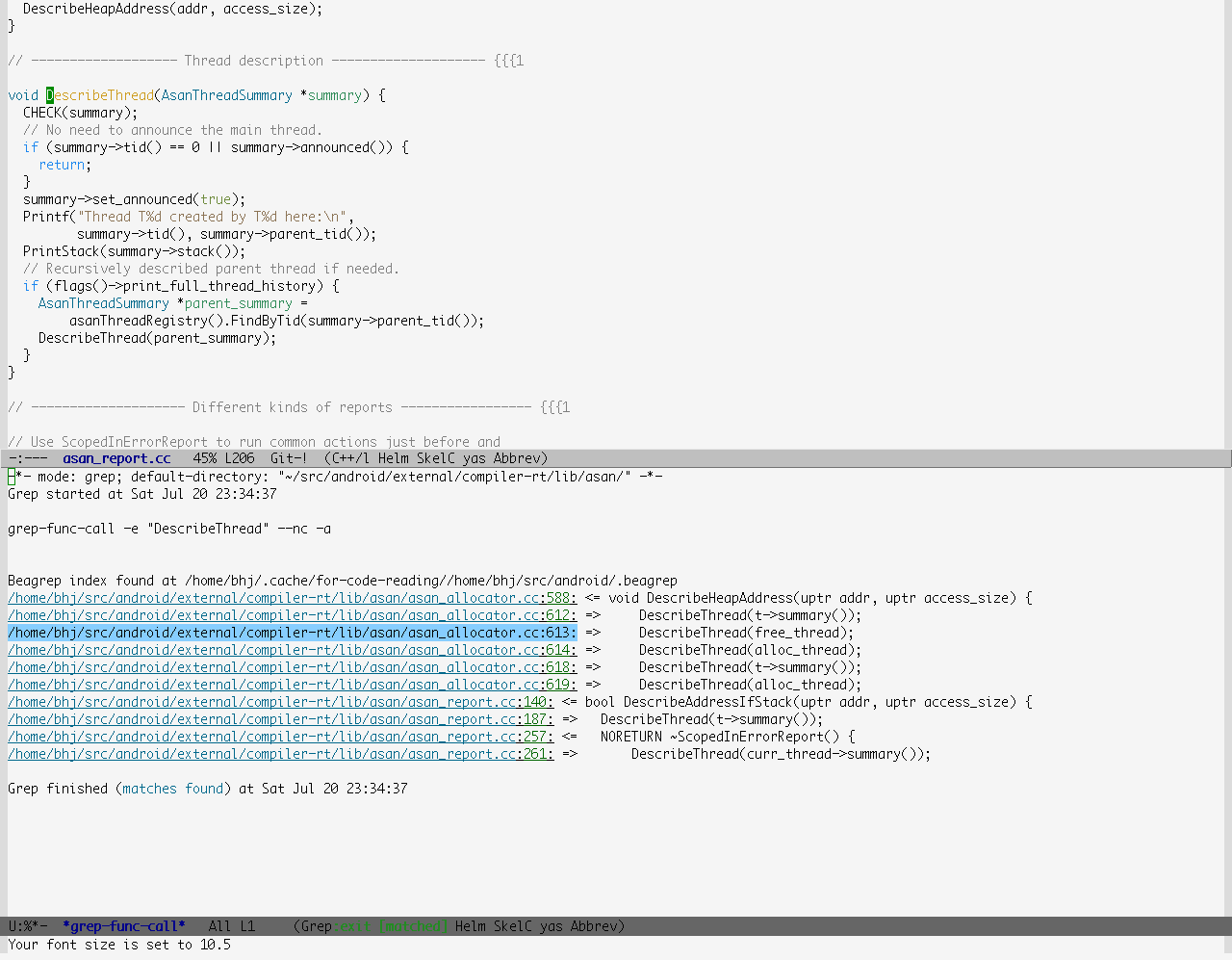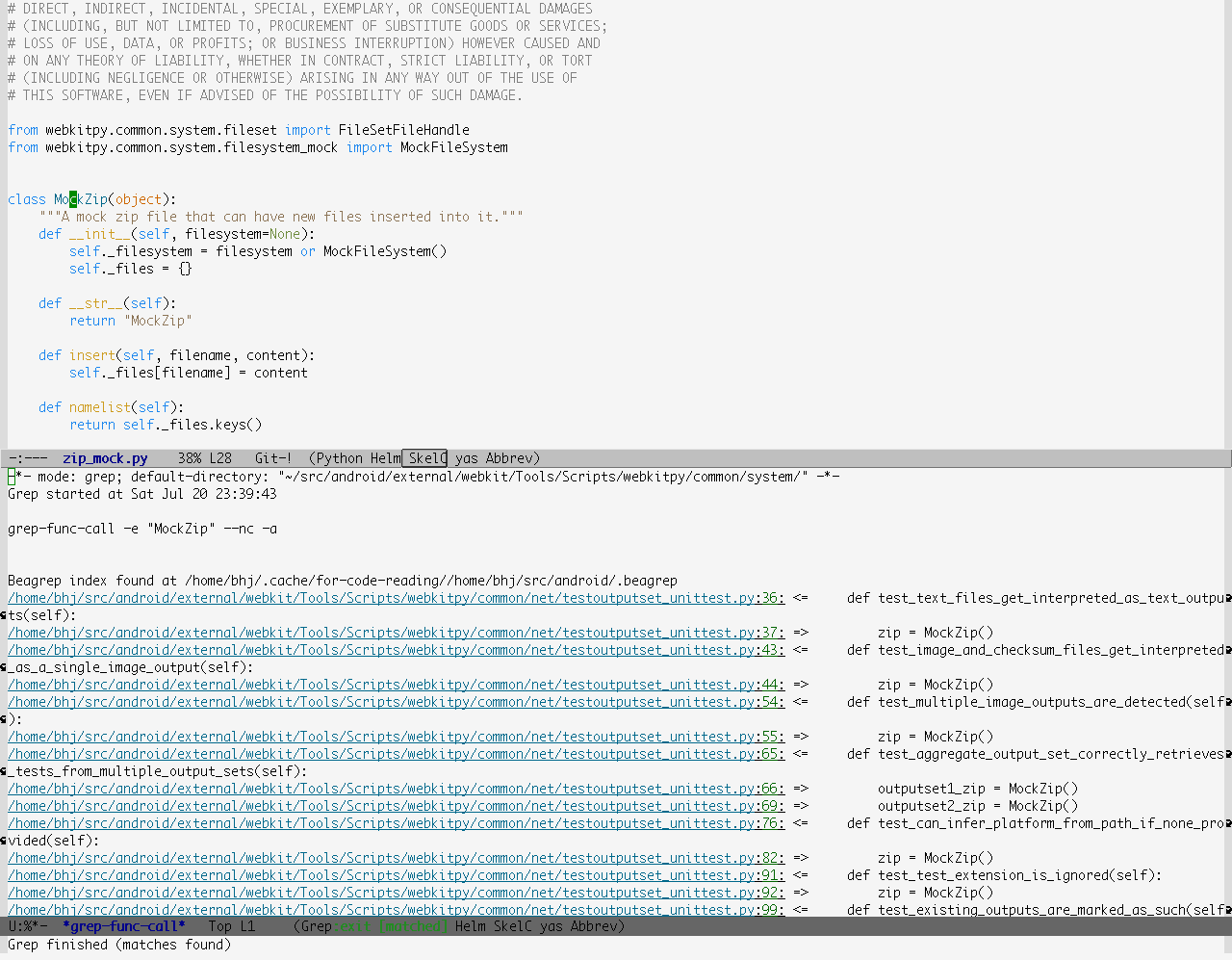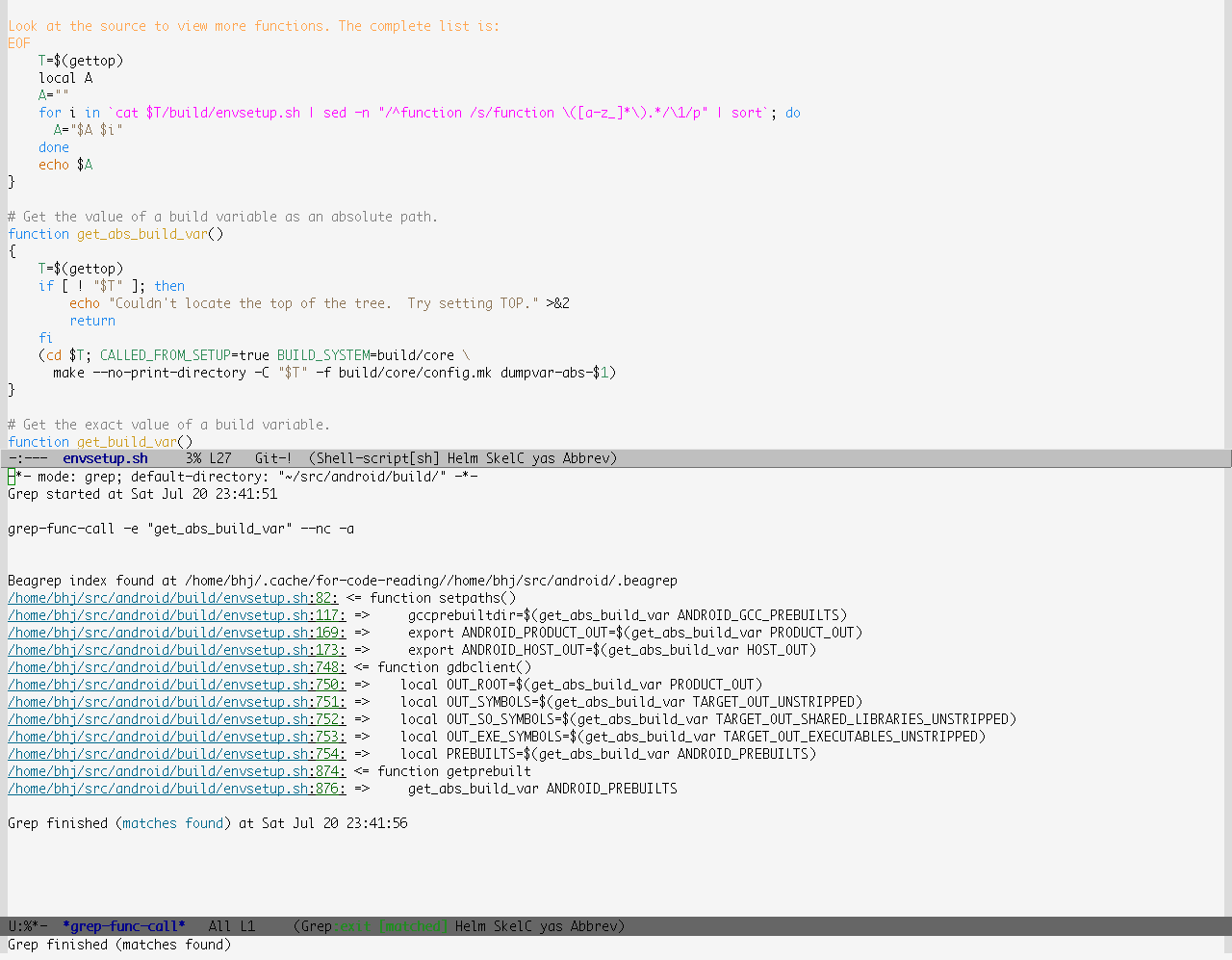Grepping Cross References
This tool is like lxr, except it works for most programming languages (as many as supported by ctags-exuberant) and allows you use it in Emacs/Vim instead of a browser.
See some screenshots for c++, python, and shell script (click to view in the original size):
Here I'll explain some of its features and how it works.
1 It's very fast
Because beagrep is being used, which can grep 2G source code in 0.23 second.
For e.g., when checking cross references for MockZip, first we use
beagrep to find out the (tiny) set of files and line numbers on which
this word occurs. Then we work on these files only.
2 It support most programming languages
Because ctags-exuberant is used.
Given the small set of files containing MockZip, we use
ctags-exuberant to tag each of these files, then compare line
numbers. If MockZip occurs on line 88, then the last tag before line
88 is referencing MockZip.
3 It removes false positives
Currently it can take 2 arguments --nc (no comment) and --ns= (no
string) to ignore where MockZip occurs inside a comment or string
literal.
4 It reuses grep output format
For easy integration with Emacs's grep-mode. Or vim's handling of grep output.
5 It's not perfect
But good enough (at least for me:-)
6 How to use it
- Install beagrep and ctags-exuberant.
- Download and get the package from gxr.
- In your gxr checkout:
cp .globalrc ~ cp $(find . -maxdepth 1 -type f -executable) ~/system-config/bin # or some other dir in your PATH
mkdir ~/.logs- Create beagrep index in your source tree.
grep-func-call -e MockZip -a --nc --ns- File a bug on the github project:-)
Here are the arguments:
- -e pattern
- PATTERN is a perl style regexp. When you want to
find only those cross references where a var named
my_varis assigned a value, use a pattern likemy_var\s*=[^=].\bis added when appropriate, so that a pattern ofmy_varwill not findmy_var2because I do myself a favor by changing the pattern to\bmy_var\b. If I also wantmy_var2I can usemy_var2?. - -a
-ais a toggle switch, one-awill search in all source files, two (even number of)-awill search only in the file$GTAGS_START_FILE(the file my Emacs's current buffer is visiting, I added a hook in grep, the current buffer's file will be exported to the environment variable).(defun set-gtags-start-file () (let ((file (ajoke--buffer-file-name (current-buffer)))) (if (file-remote-p file) (let ((process-environment tramp-remote-process-environment)) (setenv "GTAGS_START_FILE" (file-remote-p file 'localname)) (setq tramp-remote-process-environment process-environment)) (setenv "GTAGS_START_FILE" file))))
Always use
-aif you are not sure of my hack.
- –nc –ns
- These has been explained above.



